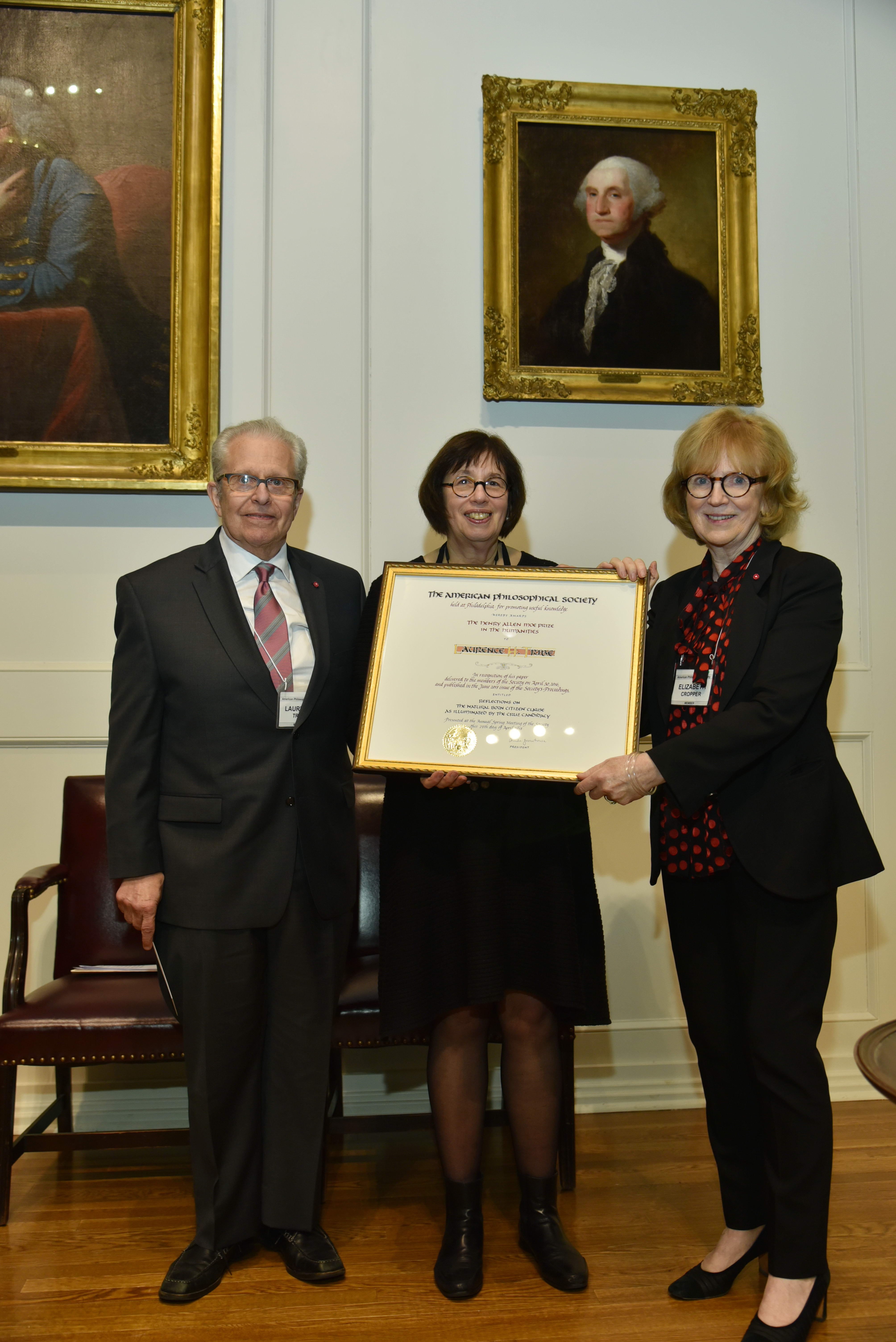2018 Henry Allen Moe Prize

2018 Spring General Meeting
Laurence H. Tribe
The recipient of the American Philosophical Society’s 2018 Henry Allen Moe Prize in the Humanities is Laurence H. Tribe in recognition of his paper “Reflections on the ‘Natural Born Citizen’ Clause as Illuminated by the Cruz Candidacy” presented at the Society’s 2016 April Meeting and printed in the June 2017 Proceedings. Laurence Tribe is the Carl M. Loeb University Professor and Professor of Constitutional Law at Harvard Law School.
Laurence Tribe’s compelling argument confronts the fact that the Supreme Court has never ruled on whether being a citizen at birth by grace of federal statutes is sufficient to establish “natural born” citizenship. While considering the problems raised by Senator Ted Cruz’s birth status and his qualification (or not) to hold the presidency, Tribe unpacks the considerable intricacies of the technical interpretation of the “Natural Born Citizen” Clause in Article II of the Constitution, as well as the broader problem of what its provisions might be reasonably construed to suggest. It is not only Cruz’s own originalist methodology that would stand in the way of his candidacy; even for those who reject originalism, the difference between “natural born” and “naturalized” cannot be ignored. The paper not only faces matters of immediate political urgency that could lead to a constitutional crisis, but also ones of long-term importance to the whole citizen body that reflect on the values that we place on all citizens, “naturalized” or not. These arguments have immense significance for our future as a nation of immigrants. The questions raised are sometimes ones of rebarbative complexity, yet they are always set out with precision and clarity. Laurence Tribe’s essay is remarkable for its clarity, its scholarship, its quietly subversive humor, its learned and respectful critique of “originalists,” and its articulation of the significance of the clause against a backdrop of the nation’s continuing aspiration for greater equality of its citizens. It demonstrates in an understated yet eloquent way that jurisprudence has a place among the humanities.
The prize was established in 1982 by a gift from the widow of Henry Allen Moe, to honor the longtime head of the Guggenheim Foundation and president of the American Philosophical Society from 1959 to 1970. It pays particular tribute to his firm commitment to the humanities and those who pursue them. The prize is awarded annually to the author of a paper in the humanities or jurisprudence read at a meeting of the Society.
Members of the selection committee were Elizabeth Cropper (chair), Dean, Center for Advanced Study in the Visual Arts, National Gallery of Art; Michael McCormick, Goelet Professor of Medieval History, Harvard University; Brent Shaw, Andrew Fleming West Professor of Classics, Princeton University.
